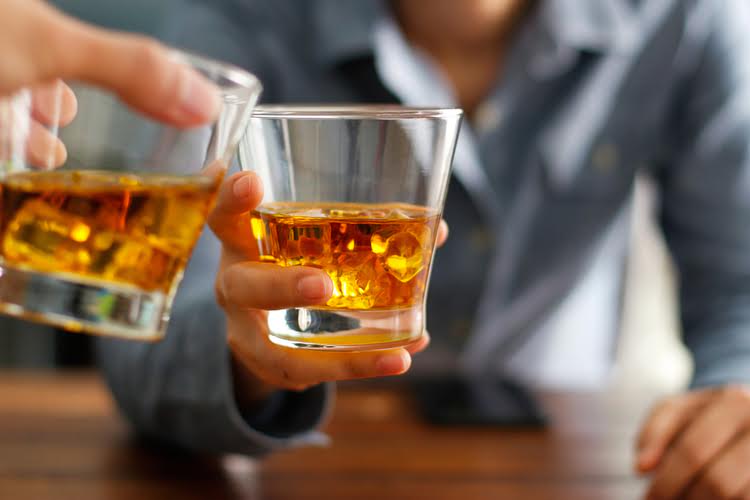We know that it can be challenging going from craving one substance to another. But by understanding the cause, you’ll be better equipped to handle it and move forward. Eating a balanced diet is one of the best things you can do to improve your health, regardless of whether you’re battling addiction.
In addition, alcohol addiction comes with an array of underlying psychological effects and foundations. These tend to not be the main reason why recovering alcoholics crave sugar, as we’ll see next, but they are crucial in this discussion. Having offered services for drug and alcohol rehab in West Virginia for years, we at Harmony Ridge Recovery have seen this connection and its effects manifold.
Why Do Recovering Alcoholics Crave Sugar
Poor nutrition and excessive sugar intake can also contribute to weight gain, low mood, and increased susceptibility to alcohol relapse. It is essential for individuals in recovery to prioritize balanced nutrition, consume complex carbohydrates, healthy fats, and sufficient protein, and avoid high-sugar foods. Proper nutrition is a form of self-care and supports overall physical and mental health, helping to maintain sobriety. Reducing sugar intake can be beneficial for individuals in recovery from alcoholism.
- Two significant factors in this regard are emotional eating and coping mechanisms, as well as the impact of stress on cravings.
- Some people may be more susceptible to developing this condition due to underlying mental health issues like depression or anxiety.
- Encourage professional help, be supportive, and practice self-care.
- Mindful eating involves paying attention to the experience of eating, including the taste, texture, and smell of food.
- Mixed drinks often contain large amounts of additional sugar, but the alcohol itself does not contribute to your sugar intake.
Individuals with AUD often experience nutritional deficiencies due to the impact of alcohol on their body. Excessive alcohol consumption can interfere with the absorption and utilization of essential vitamins and minerals. These nutritional deficiencies can lead to imbalances in the body, which may contribute to sugar cravings. Alcohol consumption can have a direct impact on sugar cravings in individuals with AUD. Alcohol is processed by the body as a source of energy, and its metabolism can disrupt blood sugar levels. When alcohol is metabolized, it can cause a rapid increase in blood sugar levels, followed by a subsequent drop.
Why do some crave sweets after drinking alcohol?
You face many hurdles along the way to a happier and more fulfilling life. Avoiding sugar may be one of the most daunting of these challenges. Finding coping mechanisms that prevent you from going from one compulsive behavior to another is the key to sobriety and avoiding behaviors that threaten your overall health. Finally, it is important for recovering alcoholics to have a support system in place to help them manage cravings. Connecting with family and friends, attending support groups, and talking to a therapist can all help to provide a sense of comfort and support during the recovery process. However, while sugar can help with energy levels in the short-term, it can also contribute to problems in the long-term.

Residents at The Sanctuary Recovery Foundation support and encourage one another to stay on track. Alcoholism is a chronic disease that affects millions of people worldwide. It’s characterized by an inability to control drinking habits, despite negative consequences, and wanting to quit despite being unable why do alcoholics crave sugar to. This disease can impact anyone, regardless of age, gender or social status. Lean meat, seafood, eggs, tofu, edamame, tempeh, beans, nuts, hummus, seeds, almond butter.. (However a mix of both is ideal!) Protein can keep you satisfied throughout the day and provides amino acids to help combat cravings.
Nutritional Strategies to Manage Sugar Cravings
It would be easy to give in, but you’ve seen all the recent news about the negative effects it can have. Craving sugar is common after drinking because alcohol contains sugar. Many people with alcohol use disorder (AUD), in addition to having an addiction to alcohol, also have a physical addiction to sugar. When they’re no longer getting their “sugar fix” from alcohol, they seek it elsewhere. Unfortunately, satisfying sugar cravings can prolong recovery and lead to other medical complications.
Some of the most common signs of sugar addiction in an alcoholic include cravings for sweets, binging on sugary snacks, and an inability to stop eating them. An alcoholic may also experience mood swings, fatigue, and irritability when they are not able to have their sugary snacks or drinks. Additionally, an alcoholic may also experience a sudden increase in their appetite or an inability to feel satisfied after eating a meal. If an alcoholic is looking for healthy alternatives to consuming sugar, there are a few options.
Which Drugs Can Kill Brain Cells?
The study shows that preference for sweets can be genetic, but that there is a link between a preference for sugar as well as alcohol. Alcoholic subjects preferred the sweeter sucrose solutions that were given. Quitting drugs and alcohol is a personal decision and nobody can make that choice for you. If you are considering quitting, please reach out and I can put you in contact with the right resources. Additionally, sugary alcohol drinks increase dehydration compared to standard alcohol flavors.

